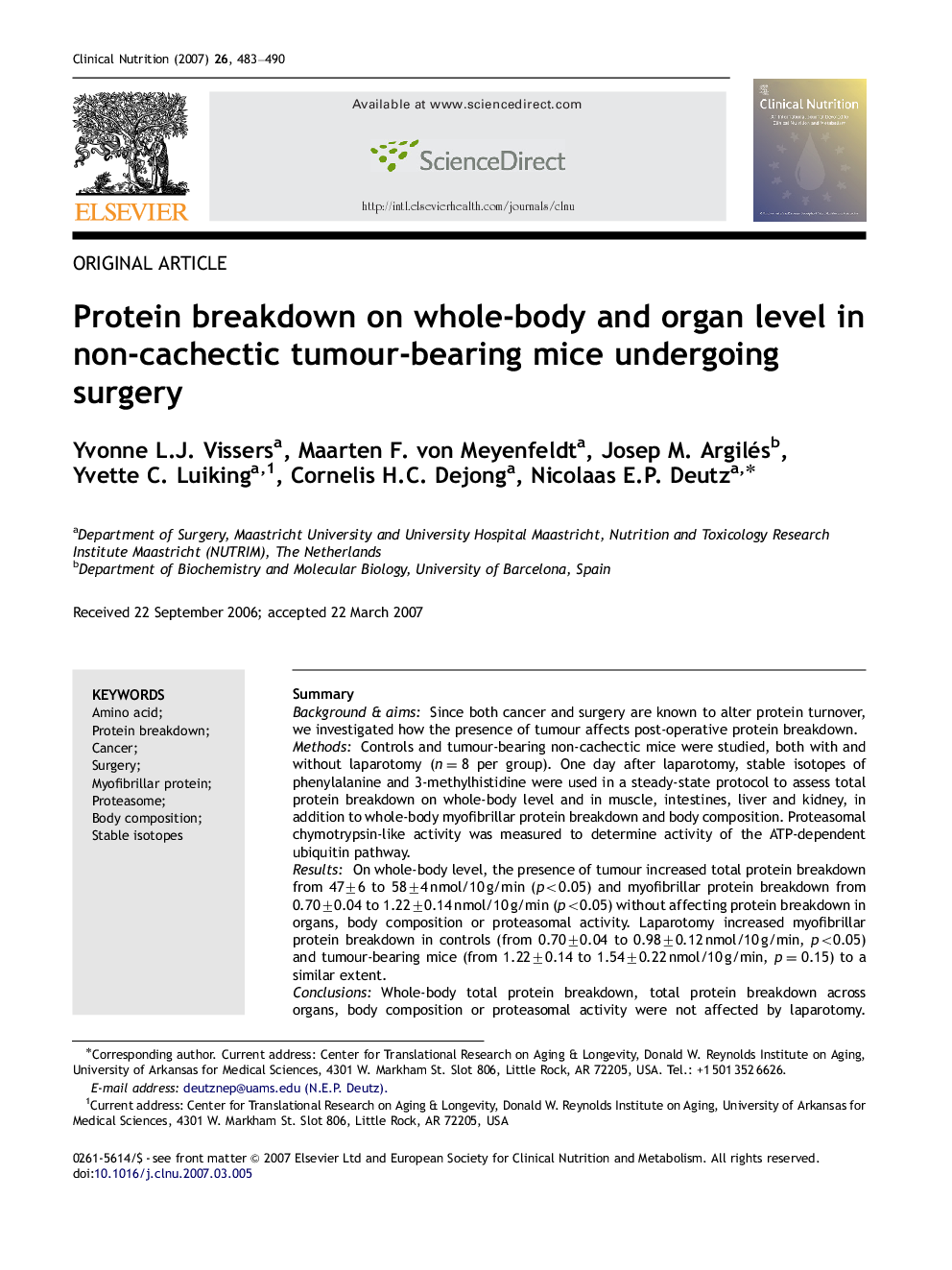| Article ID | Journal | Published Year | Pages | File Type |
|---|---|---|---|---|
| 2683375 | Clinical Nutrition | 2007 | 8 Pages |
SummaryBackground & aimsSince both cancer and surgery are known to alter protein turnover, we investigated how the presence of tumour affects post-operative protein breakdown.MethodsControls and tumour-bearing non-cachectic mice were studied, both with and without laparotomy (n=8 per group). One day after laparotomy, stable isotopes of phenylalanine and 3-methylhistidine were used in a steady-state protocol to assess total protein breakdown on whole-body level and in muscle, intestines, liver and kidney, in addition to whole-body myofibrillar protein breakdown and body composition. Proteasomal chymotrypsin-like activity was measured to determine activity of the ATP-dependent ubiquitin pathway.ResultsOn whole-body level, the presence of tumour increased total protein breakdown from 47±6 to 58±4 nmol/10 g/min (p<0.05) and myofibrillar protein breakdown from 0.70±0.04 to 1.22±0.14 nmol/10 g/min (p<0.05) without affecting protein breakdown in organs, body composition or proteasomal activity. Laparotomy increased myofibrillar protein breakdown in controls (from 0.70±0.04 to 0.98±0.12 nmol/10 g/min, p<0.05) and tumour-bearing mice (from 1.22±0.14 to 1.54±0.22 nmol/10 g/min, p=0.15) to a similar extent.ConclusionsWhole-body total protein breakdown, total protein breakdown across organs, body composition or proteasomal activity were not affected by laparotomy. Tumour-bearing mice had increased total and myofibrillar protein breakdown on whole-body level even before weight loss was obvious. However, this did not affect the post-operative response in protein breakdown or body composition.
